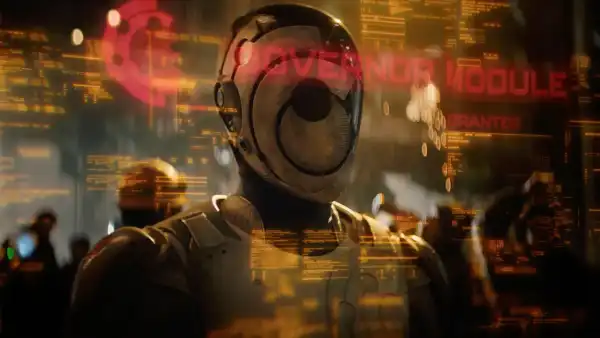
Elon Musk has said that he took over Twitter to preserve its role as a digital town square. Judging from his first ten days leading the company, he has made it more like his own digital back yard, a place where he is free to shout nonsense at his neighbors, kick out his perceived antagonists, and capriciously revise the house rules. As a boss, he has been inscrutable and cavalier, directing his managers to fire nearly half of Twitter’s staff, over e-mail, then reportedly attempting to woo some of them back. Employees accustomed to working remotely have suddenly been ordered back to the office—or else. The same sense of chaos has consumed the platform, as Musk has tinkered haphazardly with Twitter’s content-moderation and account-verification mechanisms, sometimes issuing and revoking a new policy almost in the same breath. On November 6th, a week after declaring that “comedy is now legal on Twitter,” he dictated that parody accounts failing to identify themselves as such would be “permanently suspended.” Some took the news as an occasion for some kamikaze-style trolling. “I am a freedom of speech absolutist and I eat doody for breakfast every day,” the comedian Kathy Griffin tweeted under Musk’s name, and was promptly given the boot. As an illustrator named Lauren Dombrowski tweeted, “being on Twitter right now is like playing the violin on the titanic except we are also making fun of the iceberg and the iceberg is getting genuinely mad.”
How will users know when it’s time to jump ship? MIT Technology Review estimates that Twitter has lost more than a million users since the acquisition. Collin Leonard, a young journalist in Utah who decided to leave the platform this week, told me, “I have a problem with the idea that one guy can shift the landscape of whole industries on a whim.” But the hourly drama may also be attracting a new population of previously disengaged spectators, like flies to rotting fruit. On Monday, Musk tweeted a graph of Twitter’s global daily active users showing a sharp increase over the past two weeks. Other reports have found a recent jump in downloads of the Twitter app. The midterm elections may have also helped give the platform a boost. Last week, Musk decided to postpone a relaunch of a new verification system until after the election, in response to concerns that accounts might impersonate politicians. But he didn’t hold back from putting his own finger on the political scales, advising his more than a hundred and ten million followers to vote Republican.
For some entrenched Twitter users, the platform now presents an ethical dilemma: Do you stay logged on and support Musk’s forty-four-billion-dollar plaything, or do you quit and sacrifice whatever reputation and following you’ve built there? In recent days, an atmosphere of mourning for Twitter’s early years has set in. In a thread on Saturday, the novelist Mat Johnson recalled joining the platform in the spring of 2008 and finding a supportive audience for his writing: fellow novelists, critics, readers. “It was a much more intimate experience. Things only went one or two circles away from you,” he told me. Over time, the platform grew increasingly negative, until any anodyne tweet could be met with a swarm of hostility from strangers. “We’ve been waiting for this to end,” Johnson said. But watching Musk use Twitter as a personal cudgel—and spread disinformation, as he did by linking to a conspiracy theory about the attack on Paul Pelosi—was a new low in Johnson’s mind. “It’s not only inept, but, morally, I don’t know if I want to be a part of it,” he said.
Keely Adler, a vice-president at the agency Dentsu Creative, was hopeful at first that Musk might assume ownership of Twitter without drastically changing it. “That hope feels like it was woefully misplaced,” she told me. For now, though, she has decided to stay put, in part because there is no clear replacement for Twitter. Some people are relocating to the open-source alternative Mastodon, which has gained around half a million new users since October 27th. (“We’ve attracted the kind of people who would moderate against hate speech when running their own servers,” Mastodon’s founder, Eugen Rochko, told Time.) Adler also cited Farcaster, a “decentralized social network” that acts more like a protocol than a business, with technological infrastructure that anyone can build on. But “they don’t achieve the scale of community or the town-square vibes you get on Twitter,” Adler said. I asked her about the possibility of an imminent mass exodus. She was skeptical: “I don’t think we’re ready for it, honestly. Not without somewhere natural for us to filter en masse.”
Is Twitter simply too compelling and unique to leave? Some are planning to hold their noses through the Musk regime as they did in the Jack Dorsey era, during which the app languished as Dorsey double-timed as the C.E.O. of the payments company Block. “I’ll do anything if it’s useful. I’m still having as pleasant an experience as you can have on Twitter,” the novelist Jami Attenberg told me. She continued, “I think your loyalty is to your community; it’s not to the platform. I’m not in service of the people who are providing the technology.” Chris Black, the co-host of the podcast “How Long Gone” and a prolific tweeter, argued that the people threatening to leave are merely virtue-signalling. “Being anti-Elon is more important to them than continuing to use a platform they enjoy,” Black said, adding, “The tweets are insufferable.” Nor is leaving Twitter because of Musk a terribly coherent strategy, given that, as Black put it, “every major tech company is run by a bozo who believes things I don’t.”
Still, the average Facebook user isn’t subjected to Mark Zuckerberg’s personality every time she logs on. As Johnson described it, being on Musk’s Twitter feels “like going to an Airbnb where the owner wants to come by the place and talk”—perhaps to remind you that you’re on his turf. On Wednesday, after Musk replaced blue-check identity verification—for governments or celebrities, say—with a gray “official” check, then nixed that feature almost immediately, he tweeted, “Please note that Twitter will do lots of dumb things in coming months.” As of Friday, the gray official checks were back again. Social-media interfaces and features change subtly all the time, not always to the benefit of user experience. Like a frog in slowly boiling water, we go about our business without realizing how digital spaces manipulate us and algorithmically warp what we see. Musk, in that sense, is simply the human avatar of how fundamentally unstable and exploitative Twitter has always been. His antics make it easier to see the benefits of leaving, and how little we gain from staying. As Adler told me, “Elon just threw gasoline on an existing fire.”
Two months ago, in the midst of Musk’s drawn-out acquisition negotiations, I quit Twitter. It wasn’t an act of protest. I was simply trying to avoid the exhausting onslaught of my feed. But a few days ago I logged back on to my account, in part because I was morbidly curious about the conflagration of a platform I’ve used for nearly a decade and a half. A slew of executives resigned from Twitter this week, including Yoel Roth, the head of trust and safety. According to the tech newsletter Platformer, Musk told his staff that “bankruptcy isn’t out of the question.” We’ve been pessimistic about Twitter for a long time, but now the feeling is tinged with Schadenfreude. As Rusty Foster, the author of the newsletter Today in Tabs, told me, “Musk owning it makes me want it to fail, whereas before I wanted it to be better.” ♦
Sourse: newyorker.com






